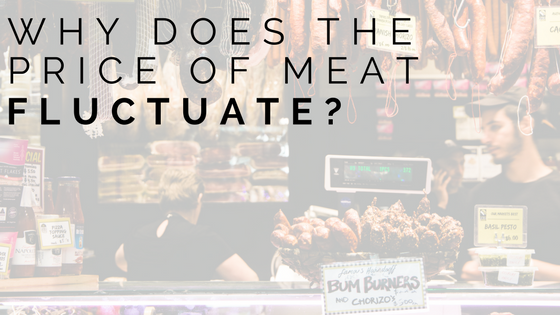To the average person, the fluctuations in the price of meat seem to occur at random. However, there are specific reasons why meat changes in price from one day to the next. Whether a person is a meat producer, a store owner, a consumer or simply interested in the workings of the economy, it is important to understand the reasons that meat changes in price.
Meat Production
The availability of meat is one of the key factors in determining meat prices. Though rare, illnesses such as mad cow disease can strictly limit the amount of meat available on the market. While modern livestock herds are carefully managed to avoid illnesses, there are always uncontrollable factors that impact how much meat is available. For example, widespread drought or severe winter weather can take a toll on livestock and cause a reduction in market animals in the following year. High prices can also impact production. If the prices of pork are high, farmers may focus more on producing more pork and prices will fall.
Consumer Demand
The demand for meat also plays a role in the price of meat. The various meat industries have promotions to draw interest to their specific product. For example, the National Pork Board had a successful marketing campaign with their ‘Pork, the Other White Meat’ promotion. By advertising the qualities of pork, they were able to boost demand for their product. During the early years of this promotion, pork prices rose while the price of chicken, turkey and other competing meats fell. When demand falls, meat producers are forced to lower price in order to move the product that they have available for sale. As meat is a highly perishable commodity, demand has a larger impact on the price of meat than many other commodities.
Government Subsidies
The food industry, in general, is more highly subsidized by the government than any other industry. The government takes an interest in food production as a way to protect the country from foreign governments. Subsidies help farmers to stay in production so that the country can produce its own food. The government subsidies work to keep meat prices down as the government is paying for some of the production costs. Though subsidies are looked at as a benefit to farmers, subsidies also work to boost the country’s independence and lower costs to consumers.

